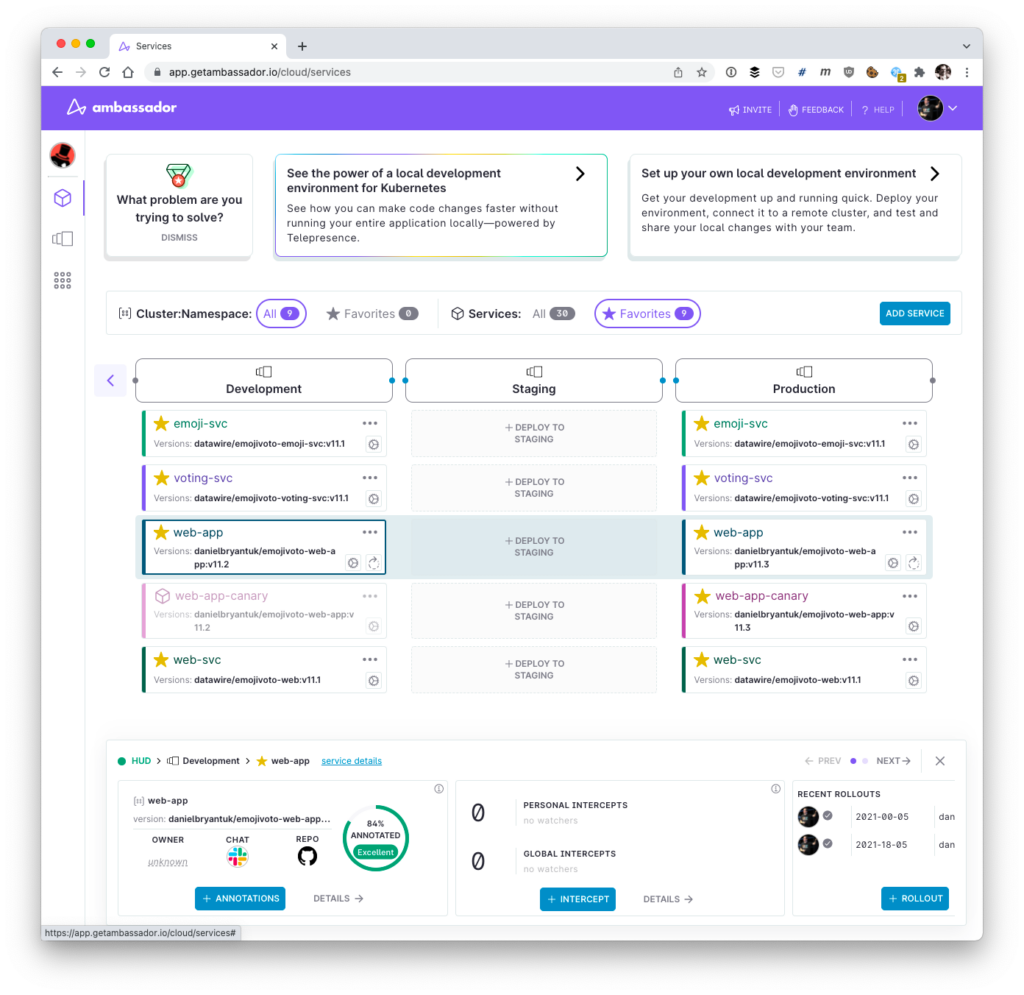Ambassador Labs Adds Free Tier to K8s App Dev Platform
Ambassador Labs has updated its app dev platform for building cloud-native applications to include a free tier for individual developers.
The Ambassador Cloud is based on the Ambassador Developer Control Plane (DCP), a set of open source components that includes Envoy proxy software, the Argo continuous delivery platform, the emissary-ingress application programming interface (API) gateway and Telepresence traffic management software for microservices running on Linux and Windows platforms. All four of these components are being advanced under the auspices of the Cloud Native Computing Foundation (CNCF) after Ambassador Labs contributed emissary-ingress and Telepresence to the CNCF.
Richard Li, Ambassador Labs CEO, says the free tier is intended to expose individual developers to the platform, which is designed to make it simpler for them to build cloud-native applications without the need for intervention from an IT operations team. Developers can also upgrade to a paid plan for Ambassador Cloud for as little as $5 per month.
In addition to the free tier, Ambassador Labs has also added support for an unlimited number of environments, each consisting of one or more Kubernetes namespaces. As a result, developers are no longer limited to just development, staging and production options for development environments.
There is also now a drag-and-drop interface through which developers can configure code flow preferences from a local development environment that can be applied to a shared test environment or multiple production environments.
Ambassador Labs now also supports version 2.1 of Edge Stack and emissary-ingress to provide developers with access to an ingress controller and an API gateway that can both natively integrate with a GitOps workflow or be accessed via a user interface. The company has also made generally available the ability to generate the YAML files required for Argo rollouts that are used to initiate and manage canary releases.
Finally, Ambassador Labs has also added support for Helm charts and a sign-on wizard that make it simpler for individual developers and extended team members to set up an environment for Kubernetes.
Li says the goal is to make it possible for developers that are intimidated by Kubernetes to set up development environments in a few minutes. Ambassador Cloud reduces complexity by making it possible for developers to deploy a private, scalable development environment that is easy to maintain in a few clicks, says Li. That environment will also automatically detect configuration and code changes, adds Li.
Ultimately, the success or failure of Kubernetes in the enterprise will hinge on companies’ ability to provide developers with higher levels of abstractions that make Kubernetes less intimidating. Kubernetes may be one of the most powerful technology platforms ever created, but it’s also one of the most complex. Enticing developers to build more cloud-native applications on Kubernetes will require organizations to reduce the current level of friction that developers encounter when building and deploying any microservices-based application. Otherwise, developers will simply opt for platforms they already know no matter how much IT operations teams might prefer a more modern Kubernetes platform.



